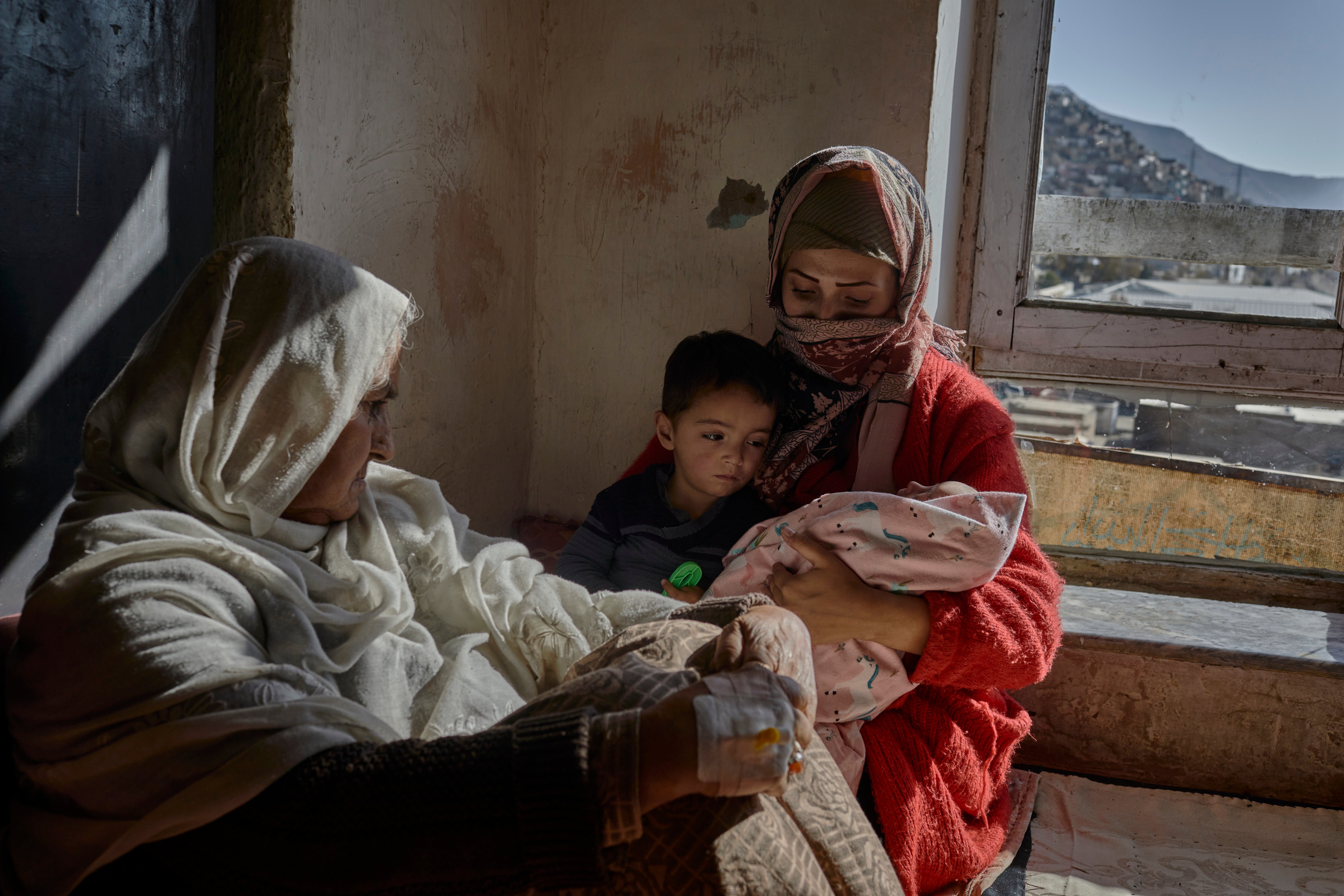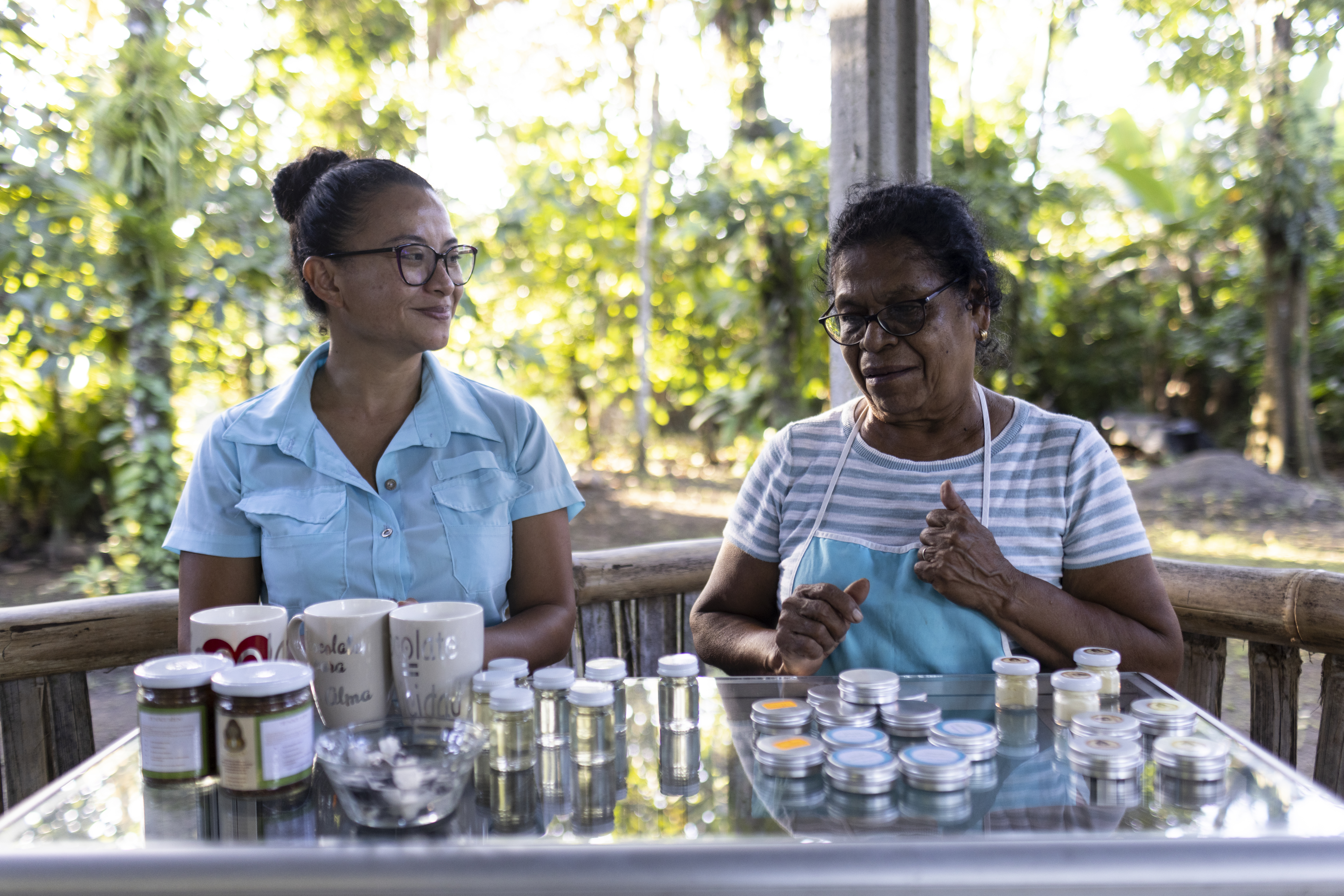Congolese victims of sexual violence call for help from the international community
Congolese victims of sexual violence call for help from the international community

MUGUNGA III CAMP, Democratic Republic of the Congo, March 16 (UNHCR) - Marie* was first raped three years ago during a raid on her village that left her husband and 10 children dead - she was about 70 years old at the time.
In January, the Congolese grandmother was raped again by armed men when she left the shelter of Mugunga III - a hilltop camp for some 2,000 of the most vulnerable displaced people in eastern Democratic Republic of the Congo - to search for a teenage girl who had gone missing while foraging for firewood in the forest.
"I told them I was a poor old woman and that I was not interested in politics. They then asked me if I preferred to die or be raped. I told them, 'Rape me then,'" Marie, struggling with her emotions, recalled of the second incident.
"There were six of them. When one finished, another took his place. They hit me and broke my knee. Other women were also there in the forest and, after being raped, the men pushed pieces of wood inside them and the women died," she told UNHCR. "I was lucky, they did not kill me."
Many other women in the DRC's volatile North Kivu province have suffered similar abuse and family loss and they feel that the outside world is doing too little to help them or to tackle the widespread problem of sexual and gender-based violence in this neglected corner of Africa. Last year, some 15,000 cases of sexual violence were reported in the DRC, mainly in eastern provinces.
"There are many visitors, many delegations, who come to listen to survivors of sexual violence, but we never see results from these visits," said Jeanne, another forcibly displaced woman at Mugunga III.
She was among a group of 20 women at the camp, many of whom have lost everything, who asked UNHCR visitors in late February to tell the world their stories and to solicit help. "We are touched to see that people think about us," said another victim, Thérèse, "but we also need help to get over our problems and sustain our families despite all our internal suffering since being raped."
Women and girls in the Mugunga camps are particularly vulnerable if they have to go out and collect firewood, mostly in the Virunga National Park. They risk sexual assault, but things would be far worse for their menfolk.
"We are scared to go to the forest, but we have no choice," said Sabine. "We have tried sending our husbands, but if they go they get killed, so we prefer going by ourselves. In the best case, we only get beaten, but often we are raped."
Marie was not looking for firewood when she was attacked, but she was searching for a 15-year-old girl who had been sent to bring back the precious resource, which is used for cooking or to sell for a small sum.
The 74-year-old was a rich woman before she was forced to flee her home in North Kivu's Nyabondo district in 2008. "I had more than 100 cows and 40 pigs and goats. I had a house on a hill, a guest house with six bedrooms and a sewing machine," she recounted. "Everything was stolen."
Her husband was forced to watch as she was raped, before he was killed. Marie was also shot in the legs and still has to use a crutch to get around. In Mugunga III, she lives in a small hut with six of her grandchildren and the three children of a neighbour who died, including the girl who went missing in Virunga.
"I had heard that girls were kept as sex slaves in Virunga Park," Marie said, explaining why she went to look in vain for the girl. She said she has felt sick ever since the rape ordeal. "It hurts when I move. It hurts when I walk. It hurts when I breathe . . . I have to go to hospital, but I cannot afford it."
Aside from such health problems, victims of sexual and gender-based violence also face ostracism from their community, lack of sympathy, mental trauma and problems earning a living and supporting their family.
The women in Mugunga III who approached UNHCR for help, also want support for socio-economic and income-generation projects to help female victims of sexual violence. They want their husbands and sons to be sensitized to the problem. "I talk to my son when rapists are sent to jail. I tell him that if this happens to him one day, I would never visit him in prison," said Thérèse.
Meanwhile, UNHCR has swiftly responded to one of the requests from Mugunga III by launching a project to provide about 500 women with fuel efficient stoves so that they no longer have to forage in the forest for firewood. They will also be taught to make fuel briquettes from sawdust and paper. The project will benefit all households in the camp.
* Name changed for protection reasons
By Celine Schmitt in Mugunga III Camp, Democratic Republic of the Congo








